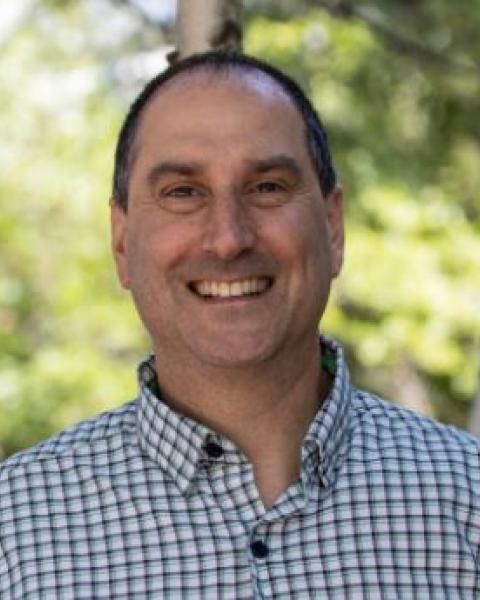In this video series, Stephanie Burnham, a leading estate planning attorney licensed in New Hampshire and Massachusetts, breaks down the key estate planning concepts that every farmer should know to ensure their hard-earned assets stay within the family, avoid unnecessary taxes and legal hurdles and transition smoothly to the next generation. While this series will help you understand key concepts and take actionable steps, it’s essential to consult with an estate planning attorney who understands the specific needs of New Hampshire farmers. Your attorney can help tailor a plan that fits your farm's unique circumstances, ensuring that your assets are fully protected, and your wishes are honored.
00:00:00:00 - 00:00:26:21
Hello, I'm Stephanie Burnham, I'm a probate and estate planning attorney licensed in New Hampshire and Massachusetts. Today I wanted to talk a little bit about last Will and Testament and trusts and how they're different from each other and what their purposes are. I hear a lot of times in my practice. I have a last will and testament or I have a will.
00:00:27:02 - 00:00:58:14
Isn't that enough? Doesn't that avoid probate? It doesn't. And it's important to understand why. So that you can make sure that your assets pass the way you want them to pass in the event you pass. You pass away. So what is the last will and testament? A last will and testament is a very fancy letter to a probate court judge telling the judge who you want to be in charge of administering your estate and where you want your stuff to go in the event you pass away.
00:00:58:16 - 00:01:24:15
It's only valid when a probate court judge has officially declared it valid, and then they go to the next step and actually appoint the person you have named as your executor to be able to sign documents and administer your estate. So as a result, a last will and testament must always go to probate court for it to be valid.
00:01:24:17 - 00:01:43:19
A lot of times people would like to take a last will and testament down to the bank and say, hi, I'm named as the executor. This is the death certificate. I'd like to sign that signature card so that I can go ahead and administer the bank account of the person who passed away. But how does the bank really know you are who you say you are?
00:01:43:21 - 00:02:16:21
Yes. Your driver's license says that. But they're not judges. They don't know whether or not that will is valid. They don't know whether or not that will is actually signed by the person who is died. They don't know if it's a forgery or if it's a fake. And they certainly don't want to be in the position of trying to figure that out themselves, which is why a lot of financial institutions require that somebody go and get a certificate of appointment or letters of testamentary or some other document from the probate court that says the person standing in front of them is authorized.
00:02:16:23 - 00:02:41:07
So if a will is fancy paper that provides a letter to the judge, tell him what's going to happen. Why is a trust any different? A trust is also a fancy paper. It also says who you want to be in charge of administering your estate and where you want your stuff to go. But yet a trust doesn't actually go to probate court.
00:02:41:09 - 00:03:11:23
The reason a trust doesn't go to probate court is because of ownership. Now, when we have a last will and testament, you're saying what you want to have happen with your things, but your home, your car, your bank account, all are in your name. And so if something happened to you and someone tried to go down and sign your name on a check or on the back of your car title, they're committing identity theft.
00:03:12:01 - 00:03:48:22
That's not a good plan. So instead, we use trusts to do that. And the trust doesn't have you keep your assets in your own name. Instead, for a trust to do what you want it to do, the trust must actually own the assets. And you do that by transferring these assets into the name of your trust. So if you have the Joe Smith Family Trust, you would retitle your car by updating the title with the Department of Motor Vehicles in the state to read the Joe Smith Family Trust.
00:03:49:00 - 00:04:18:22
If you had a home, you would want to update your deed so that your deed now, says the Joe Smith Family Trust, you would need to update your bank accounts so that the bank knows that the Joe Smith Family Trust owns that bank account. And now when somebody comes into the bank with the death certificate and with a copy of the trust, and they say that this person has passed away and they are the next person to administer the person we call a trustee.
00:04:19:00 - 00:04:46:10
The bank says, oh, yes, I see these accounts are owned by the trust. And I see that you are in fact, next in line to manage that trust. Here's your signature card. And now you're up and running. Balancing the checkbook and taking care of the assets of the trust. Just like that. Nice quick and easy. So a last will and testament must go to probate court because the assets are in your name.
00:04:46:12 - 00:05:13:21
A trust avoids probate court because a trust actually owns the assets. Now, don't get me wrong. You're not giving up control of your assets just because you put it in a trust. A revocable trust, which is the most common type of trust used, still keeps you in charge. And for purposes of what your net worth is and for how you control them and what you can do with them, it's still your asset.
00:05:13:22 - 00:05:39:03
These are still your things. It's all about making sure it's easier on your family when you pass away. So how does a trust work exactly? We've already talked about the fact that it's going to own this stuff. But what does that mean really? Well, in the trust we've given people jobs, we have said who is going to have the authority to do what.
00:05:39:05 - 00:05:58:08
It's kind of like a small business in a sense, because in a business you have managers and you have people that are come in as your customers and people that are entitled to do certain things. And you spell it out in the documents that create that business. A trust works the same way. And the people that are involved in a trust have specific names.
00:05:58:10 - 00:06:19:18
Now, the first name I like to talk about is the Grand Tour. The Grand Tour is the creator of the trust. Now, sometimes in some documents they'll be called a settler, or they'll be called a trust. Or look for the author at the end. That's the creator of the trust, right? That person has very special rights and a revocable trust.
00:06:19:20 - 00:06:48:19
They have the right to change the terms of the trust. They have the right to alter the language in the trust document, and they usually have the right to do all the things that they could do before they put the assets in the trust with the assets and the trust. So the right to live in any real estate owned by the trust, and no one can make them pay rent, drive the car, take money out of the ATM, sell everything by a boat, and spend the rest of their life cruising in the Caribbean.
00:06:48:21 - 00:07:13:09
The grantor has all of that power. It's still their stuff. It's just owned in their trust. Now, the second person that's involved in a trust and this can be more than one, but you don't want it to be too many. So 1 or 2 is usually good enough. They're called the trustee. Trustees are managers. It's their job to balance the checkbook, to make sure that the property taxes are paid.
00:07:13:09 - 00:07:33:15
The cars are insured to handle all the details. Now, for a revocable trust, the grantor, the creator and the first trustee are usually the same person. So as a result it hasn't changed your life at all. They have a revocable trust because you're still writing checks out of your account. You're still balancing your checkbook. You're living in your house.
00:07:33:15 - 00:08:00:12
You're driving your car. You're trading in and buying a new car. You're selling everything. Buying a boat. Spending the rest of your life cruising the Caribbean. Now, if you pass away, you name your successor, trustees or the backup, the person who's going to be in charge when you're not. That successor trustee does not have the same powers as the Grand Tour, because the only person who could be the grantor is the creator of the trust.
00:08:00:14 - 00:08:19:09
So these successor trustees, they balance the checkbook. They make sure that your bills are paid. If you can't act as your own trustee, they make sure that they follow the terms you've put in the trust to the letter. Who's going to get what, when they're going to get it, how they're going to get it, and they're in charge of that.
00:08:19:11 - 00:08:48:06
So thinking about it this way, if you are the person who buys the boat and spend your life cruising in the Caribbean, your successor, trustee, they're kind of the one that swabs the deck and makes sure that they're putting fuel in the fuel tanks. Not quite the same level of control, but by having these people named in your document, these people can go ahead and take over because the law says that they have the authority to take over, and you've written it in your document showing us a case.
00:08:48:08 - 00:09:12:13
You've updated the ownership of the assets so that the person who's holding that asset, the registry of deeds, the town hall, who sends the property tax bill, the financial institution, the bank, all of them know that this trust owns the assets. And you have now created a way of streamlining the transfer of your assets from you to your family or your friends without the probate court process.
00:09:12:16 - 00:09:31:02
Through that tool. I hope you found this information useful. It should not substitute for legal advice. Your particular circumstances may be very different, and you should seek your own legal advice about what's best for you. Thank you very much and have a great day.
Extension Services & Tools That Help NH Farmers Grow
Newsletters: Choose from our many newsletters for production agriculture
Receive Pest Text Alerts - Text UNHIPM to (866) 645-7010

